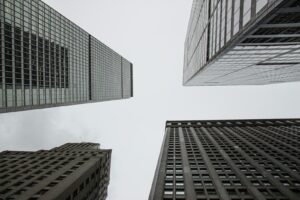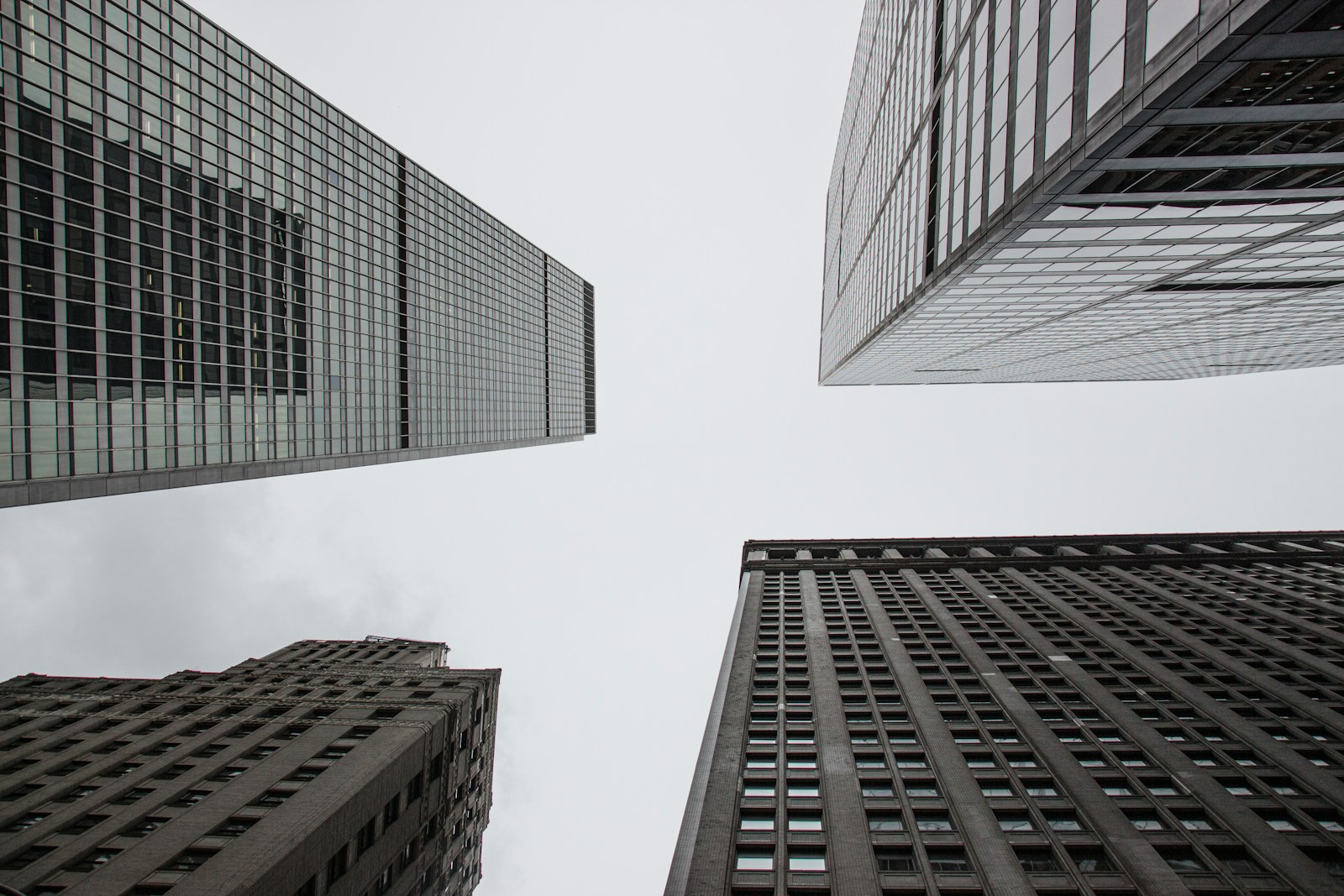The Bad King, The Oligarchs, and Bayrock
After the crash of his Atlantic City casino empire in serial bankruptcies in the early nineties—the failure of his airline shuttle service between New York and Washington, the demise of the USFL and his team the New Jersey Generals, with an $800,000 dollar insurance payment due on his yacht, the Princess, that he could not meet—The Bad King, the erstwhile real estate developer, was on the financial ropes and persona non grata with the bankers on Wall Street. With his sources of financing dried up, he was forced to go elsewhere for money—enter the oligarchs and the Russian mob.
Bayrock was an international real estate company that held itself out as a developer of notably high-end, up-scale real estate projects. It was founded by Tevfik Arif, a Kazakhstan-born immigrant who had worked at the Soviet ministry for Commerce and Trade after which he ran an export-import business before emigrating to the U.S. where he began working to develop Brooklyn real estate. The company’s advertising materials boasted a real estate portfolio worth 2.5 billion that included investments in a luxury waterfront resort hotel, residential, retail, and office space developments. At its height it was hiring top, internationally acclaimed architects to design projects in New York, Turkey, the Middle East, and around the Mediterranean.

In 2005 it moved its offices to the 24th floor of the Bad King’s New York office tower. The Bad King was introduced to Tevrik Arif by Tamir Sapir, another billionaire oligarch with ties to the Russian mob. After partnering with The Bad King and his real estate development company, Bayrock developed plans for projects in Panama City, Panama; Toronto in Canada; Baku, Azerbaijan; Kiev, Ukraine; Moscow and other sites around the world. The Bad King liked to boast that these were franchise deals. None of his company’s money went into their development. He just lent his name to the projects for franchising fees that he boasted went as high as 25% which, in some cases, gave him an equity participation in the projects. Money for these projects came from a coterie of billionaire oligarchs and Russian mobsters—all with ties to the president of Russia.
Some of these never reached fruition, like the Azerbaijan project or the proposed Moscow Tower. Others like the Toronto Tower and the SoHo Tower in New York (financed and developed by Bayrock) eventually foundered in bankruptcy. In later court proceedings, it was charged that Bayrock was mob owned and that its primary businesses were alleged to involve financial fraud, tax fraud, money laundering, extortion, drug and human trafficking, child prostitution, and on occasion real estate. In a lawsuit brought by former employees, it was alleged that Bayrock was backed (funded) by oligarchs with money stolen from the Russian people. More than 1300 of The Bad King’s real estate properties (apartments and condos) were purchased through off-shore shell corporations where neither the source of funds nor the provisional owner was required to be identified—a typical money laundering transaction.
Tevfik Arif celebrated his fifty-second birthday at a party for the grand opening of the “seven-star” Rixos hotel in Belek on the Turkish Riviera. Guests—oligarchs, Russian mobsters, and billionaires—came from all over the globe, arriving by private jet and yacht. Recep Tayyip Erdogan, the future president of Turkey, was among the honored guests. One celebrated personality who was notable by his absence was the flamboyant billionaire, New York real estate developer, reality TV star and future president of the United States—known now in these pages as The Bad King. In a video conference call put up for display on a big screen TV during the celebration, the image of the future president of the United States suddenly appeared. He had a personal message for Tevrik Arif and his celebrated guests:
“Tevfik is my friend,” he said. “Let’s drink to Tevfik!”
Felix Sater, one of The Bad King’s principal Russian cronies, was born in the Soviet Union. His father was reputed to have ties to Russian organized crime. In October 1991, the volatile Sater attacked a man with the stem of a broken martini glass in a bar fight over a woman in a downtown Manhattan club. The man’s face required over a hundred stitches. Sater was subsequently convicted of felony assault and served a fifteen-month sentence in prison. After pleading guilty to racketeering for a pump and dump stock scam that defrauded investors of 40 million dollars, he was granted immunity (because of his contacts within the Russian intelligence community) to work as a confidential government asset (informant) for the FBI and CIA in tracking terrorists and Russian intelligence agents. He maintained an office in The Bad King’s New York office tower and held himself out on his business cards as a top-level associate of The Bad King and his real estate organization. He was a childhood friend of Michael Cohen, The Bad King’s lawyer—from Brighton Beach— who went to prison for lying and campaign finance violations. Sater also worked with Cohen in continuing to promote the Moscow Hotel Tower long after the inauguration, and long after The Bad King himself falsely claimed that the negotiations had stopped, and he had no interests in Russia. The challenge for the special counsel and his team of investigators was to prove active collusion (the existence of a conspiracy) between The Bad King, his campaign, and the Russians to influence and meddle in the 2016 presidential election to help The Bad King and hurt Hillary Clinton.
Enroute to Washington
“We should be landing in about twenty minutes,” Billy announces.
Rosie has just listened to Billy give his dispassionate account of how he had assassinated (murdered) two men. She can find some sympathy with Billy’s revenge motive, but she is not sure that has brought her any closer in understanding this complex, dangerous man to whom she is now strongly attracted. She tells herself it makes no sense, but still Rosie cannot deny the feeling. This is a new world for her.
“You still haven’t told me how you got involved with the CIA,” Rosie says with a note of impatience. “What happened after you killed the Russian mobster?” she asks.
Billy looks at her. “Four days later a ten-man FBI team—in full SWAT gear—showed up at the boat to arrest me.”
Rosie asks: “How did they identify you from just the video? Did you leave fingerprints?”
“No fingerprints. The agents were part of the FBI’s Russia organized crime task force. Like I said, they had been running surveillance on the mobster for weeks. His mob had recently come to New Orleans and was trying to move in on what had been the Italian mob’s traditional drug smuggling turf—such that there was a small-scale war going on between the competing crime families. What I didn’t know: the FBI had the room bugged and had installed surveillance cameras to monitor the mobster’s activities.”
“But how did they ever find you?”
Billy grins. “It was total coincidence. When I was leaving the apartment building from where I shot the judge, I passed a man coming in the front door as I was going out. We even exchanged pleasantries.” Billy gets a little smile on his face. “He was an FBI man, going upstairs to relieve one of his fellow agents on the stake-out that they had set up—coincidentally on the same floor of the building where I had just been—to observe the judge who was being investigated for corruption and ties to organized crime.”
Again, Billy smiles. “When they were watching the video that showed me killing Puchenko, the FBI man that I had encountered at the door recognized me. It was just too big a coincidence for them to ignore. They just worked off the assumption that the shot that killed the judge had come from the same building. They assumed the vacant apartment on the 7th floor—the same floor where they had their stake-out—was the site used for the kill. Because it was a long-range shot, almost twelve-hundred yards, they immediately focused on ex-military personnel with sniper training and connections to the New Orleans area.”
Billy grins. “It was pure serendipity, but not so surprisingly my name popped up.”
“That’s incredible,” Rosie says. “But how did the CIA come into it?”
Billy explains. “The NSA (the National Security Agency), in their electronic surveillance, had picked up intercepts that hinted that a Hezbollah group with ties to the Russian mob might be planning to smuggle a dirty bomb into the United States as part of a supposed terrorist attack. The Russia House unit at CIA—which had been demoted and scaled down since 9/11—was now front and center investigating this new threat. I only found out later that they thought it might be used in a blackmail attempt to get the Obama administration and the Congress to repeal the Magnitsky Act—the official government sanctions that were so crippling the Russian economy and making it hard for the oligarchs to get their plunder out of Russia. But they had no idea how or where it was going to happen.”
Billy pauses, and then says: “For the CIA and the Obama administration, the intercepts were like a five-alarm fire, something they could not ignore, a serious terrorist threat that required every lead to be carefully and assiduously followed up.”
Rosie stares back with a rapt look on her face. “What happened next?” she asks.
“I was taken downtown to an FBI holding facility in the Federal Building,” Billy pauses and then continues. “I was booked, and briefly interrogated—but, oddly enough, not charged. They said they were going to hold off with an official charge until I could be further interrogated. This seemed curious. After all, they had the video showing me essentially executing Puchenko. They did ask, however, in the initial interrogation why I had wanted to kill the Russian mobster.”
Billy smiles. “No one was shedding any tears over his death. But I explained that it was a revenge killing. I noticed though how their ears suddenly perked up when I mentioned how my friend, Razzy, had inadvertently stumbled on what looked—at least on the surface—like an Arab smuggling operation. Suddenly they were very curious to learn more.”
“‘What do you know about a smuggling operation?’ the lead agent in the interrogation pressed me. I realized right away that the information in my possession was something that might later be useful as a bargaining chip in any later negotiation to keep myself from getting indicted for murder.”
“I’m not prepared to talk about that right now,” I answered them.
“The FBI interrogator was quick to respond. ‘We could always put you under oath.’ This was bullshit and we all knew it. They could not force me to incriminate myself. I would just plead the fifth. His fellow agent put a hand on his shoulder. ‘Easy, Charlie, he’s not yet been charged with any crime.’”
“The agent said: ‘We’re going to ask you to surrender your passport, then we’re going to release you on your own recognizance, but we’d like it if you could make yourself available—in case we have some more questions.’”
Billy is bland. “I looked back at him. ‘No problem,’ I said.”
“So, did they call you back?” Rosie asks.
“The very next day,” Billy replies. “I got a call inviting me to come downtown again to the Federal Building.” Billy pauses and grins, “only this time there was a new player in the game.”
“Let me guess,” Rosie alertly responds, “your man at the CIA?”
Billy nods. “That’s right. His name, I learned, was Shane McGregor. He had flown into New Orleans from Washington on a government plane the night before. He was the director of counterintelligence and counterterrorism in the Russia House unit of the CIA. He introduced himself and was more than a little interested in the smuggling operation that I had referenced to FBI agents. Right away, I realized this was something bigger than me popping a Russian drug smuggler.”
Billy pauses and again looks at Rosie. “He was most congenial. ‘You have quite an impressive resume,’ he said to me. ‘You were at the top of your class at Harvard law, you clerked on the Supreme Court, and then you joined the Army and served your country as a special forces Ranger in both Iraq and Afghanistan.’ He smiled. ‘Now, Billy, you’re going to get a chance to serve your country again. We need to know what you know about a smuggling operation.”
Rosie then asks the question. “Is this when you learned about the terrorist plot to bring a dirty bomb into the country?”
Billy nods. “Yeah, that’s when I first learned that the NSA had picked up multiple intercepts about what was supposed to appear as an Islamist terrorist plot being orchestrated by Hezbollah. ‘The only problem,’ I told them. ‘Your Islamist terrorists are all speaking Russian.’ This seemed to come as a big surprise. I realized then they had no clue what was going down.”
Billy smiles. “They wanted me to tell them the “where” and “how”—give them all the information. They all kind of had their hair on fire—particularly the CIA man. Obama had just concluded his nuclear treaty with Iran, and it would have been a real embarrassment for the president if it developed that Hezbollah, Iran’s terrorism proxy in Lebanon, was involved in smuggling a dirty bomb into the United States. Also, the Obama administration was working on its so-called “reset” with Russia at the time. The whole thing had all the earmarks of an embarrassing—and potentially dangerous for America—major international incident.”
Billy’s face is serious, and a sudden sadness comes into his voice. “Razzy gave his life for something he didn’t even understand, and Mercy was killed in retaliation for my revenge.”
“I’m so sorry, Billy,” Rosie says. This is genuine and heartfelt.
Billy sadly shakes his head, and his tone is almost bitter. “Then the CIA man tried what we both knew was an empty, pointless threat. ‘We could still charge you with the murder of the judge. There was a bullet recovered at the scene—a bullet from a Chey-Tac assault rifle, the type of long-range rifle you used in Afghanistan,’ he said.”
“You could,” I replied, but you can’t definitively place me at the scene, it’s your man’s word against mine, and you don’t have the rifle the bullet came from. But you can search my boat if you want.”
Billy looks across at Rosie. “The gun—the Chey-Tac long-range assault rifle that he had identified, and the gun that I’d used to kill the judge—was locked in a gun cabinet on Sam’s plantation. Sam was too well regarded, too respected in the community. There was no way they ever would have got a New Orleans judge—even a federal judge—to approve a warrant for a search on his property.”
“I told them that I was happy to cooperate, that I’d tell them everything, show them the location, but first I was going to have to get something in return.”
“‘And what’s that?’ The CIA man asked me. ‘I want a promise, a full amnesty “for behavior not yet charged”—a letter in writing guaranteeing a full grant of immunity from any future prosecution—signed by the president of the United States.’” I told him.
Rosie is incredulous. “Did you actually get an official pardon from President Obama?”
“Not a pardon, Rosie—an amnesty guaranteeing that I would never be charged.”
Billy looks smug. “This threat of a Hezbollah, dirty-bomb terrorist attack—with possible Russian involvement—had the department of state tied up in knots, CIA and defense and homeland security on full alert, and the president’s national security council all wetting their pants. That very afternoon I was on a plane with the CIA man headed back to Washington.”

